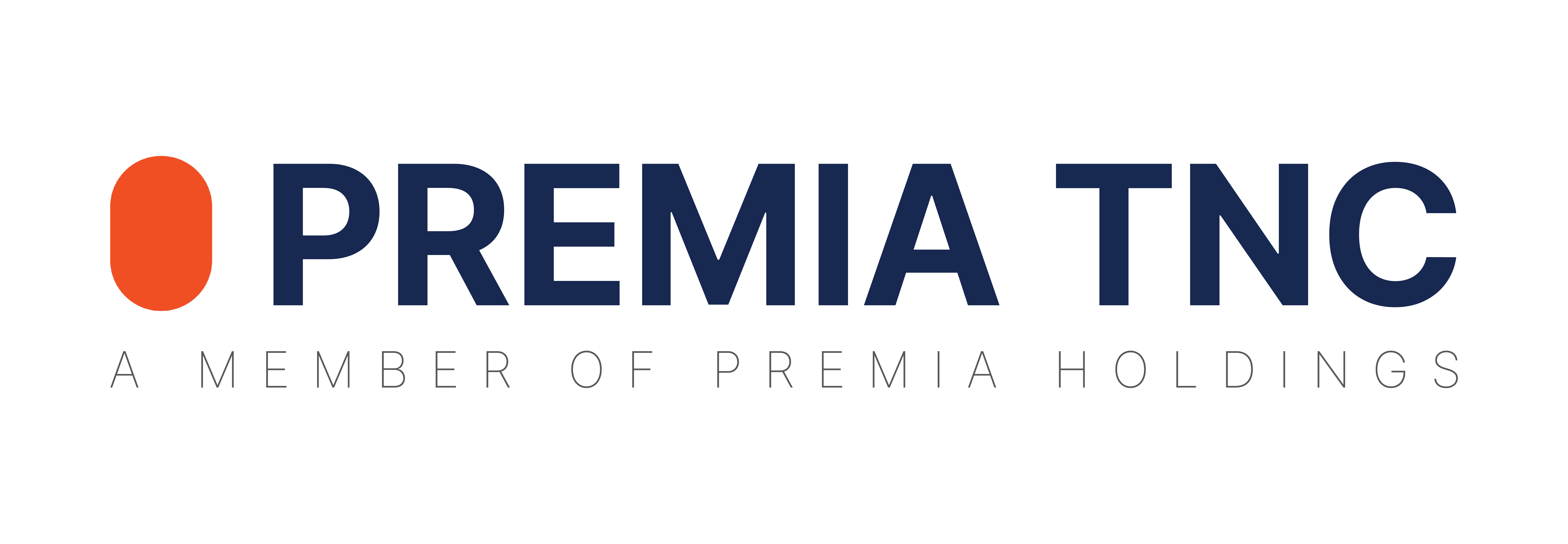



The Korean e-commerce market presents an array of opportunities for foreigners seeking to venture into the thriving online business landscape. With its robust digital infrastructure and tech-savvy population, Korea offers a dynamic market that welcomes foreign entrepreneurs. This article provides a comprehensive guide on how foreigners can successfully establish and run an e-commerce business in Korea, covering legal considerations, market research, website development, marketing strategies, and more.
Understanding the Korean E-commerce Landscape
The growth and potential of the Korean e-commerce market
The Korean e-commerce market has experienced substantial growth in recent years, driven by factors such as high internet penetration rates, advanced mobile technology, and a strong consumer appetite for online shopping. With a tech-savvy and digitally connected population, Korea presents a lucrative market for e-commerce businesses.
Popular e-commerce platforms in Korea
Naver Shopping
Naver Shopping is one of the leading e-commerce platforms in Korea, with a vast user base and a wide range of product categories. It offers various features and advertising options to help businesses effectively reach their target audience.
Coupang
Coupang is a popular e-commerce platform known for its fast delivery service. It has gained significant market share in Korea and offers various marketing and promotional opportunities for businesses.
Gmarket
Gmarket is another prominent e-commerce platform in Korea, providing a wide range of products from different sellers. It offers a user-friendly interface and various promotional tools to attract customers.
Unique consumer behavior and preferences in Korea
Korean consumers have distinct preferences when it comes to online shopping. They value convenience, reliability, and fast delivery. Building trust and providing exceptional customer service are crucial in catering to the Korean market. Additionally, Korean consumers heavily rely on customer reviews and recommendations, emphasizing the importance of cultivating a positive online reputation.
Legal and Regulatory Considerations
Business registration requirements for foreigners
Foreign entrepreneurs planning to start an e-commerce business in Korea must comply with specific business registration procedures. This may include acquiring necessary visas, obtaining a Business Registration Certificate (BRC), and registering with the relevant authorities.
Understanding e-commerce laws and regulations in Korea
To operate an e-commerce business in Korea, it is essential to familiarize yourself with relevant laws and regulations. The Electronic Transactions Act governs online transactions, while the Personal Information Protection Act regulates the collection and handling of personal data. Adhering to these laws helps protect your business and ensures compliance.
Intellectual property rights and protection
Intellectual property rights play a crucial role in the e-commerce industry. Foreigners should take steps to protect their trademarks, copyrights, and patents by registering them with the Korean Intellectual Property Office (KIPO) or utilizing international intellectual property agreements.
Market Research and Product Selection
Identifying target customer segments in Korea
Conducting thorough market research is vital to understanding the needs, preferences, and buying behavior of Korean consumers. Analyzing demographic data, consumer trends, and market demand enables you to identify target customer segments and tailor your products or services accordingly.
Analyzing market demand and trends
Understanding the current market demand and trends in Korea is essential for identifying potential product opportunities. Researching popular product categories, emerging trends, and consumer preferences can help you select the right products to offer in the Korean market.
Conducting competitor analysis
To differentiate your business and gain a competitive edge, it is crucial to conduct a comprehensive analysis of both local and international competitors. Evaluating their product offerings, pricing strategies, marketing tactics, and customer reviews can provide valuable insights for developing your own unique selling proposition.
Building an E-commerce Website or Store
Choosing a suitable e-commerce platform
Selecting the right e-commerce platform is crucial for the success of your online business. Consider factors such as user-friendliness, scalability, payment options, and integration capabilities when choosing a platform that aligns with your business requirements.
Designing a user-friendly and visually appealing website
Your website’s design plays a significant role in attracting and engaging customers. Create a visually appealing and intuitive website that reflects your brand identity. Consider factors such as responsive design, easy navigation, and fast loading times for an optimal user experience.
Integrating secure payment gateways
Ensuring the security of online transactions is paramount for building trust with Korean consumers. Integrate secure payment gateways that are widely recognized and trusted in Korea, such as KakaoPay or Naver Pay, to provide a seamless and secure checkout experience for your customers.
Optimizing the website for mobile devices
Mobile commerce is prevalent in Korea, with a significant percentage of online purchases being made through smartphones. Optimize your website for mobile devices to provide a smooth browsing and shopping experience. Implement responsive design and mobile-friendly features to cater to the preferences of mobile shoppers.
Localization and Korean Language Support
Importance of localizing your website and content
Localization is key to effectively targeting the Korean market. Translate your website and product descriptions accurately and ensure they resonate with Korean consumers. Adapting your content to local cultural nuances and using appropriate terminology enhances user engagement and builds credibility.
Hiring professional translators or agencies
To ensure high-quality translations, consider hiring professional translators or working with reputable translation agencies. Native Korean speakers with expertise in e-commerce and marketing can help you accurately convey your brand message and product information to the target audience.
Adapting product descriptions and marketing materials
Tailor your product descriptions and marketing materials to align with Korean consumer preferences. Highlight key product features, benefits, and unique selling points to capture the attention of potential customers. Utilize persuasive language and storytelling techniques to connect with the target audience.
Logistics and Shipping Considerations
Understanding Korea’s logistics infrastructure
Familiarize yourself with Korea’s logistics infrastructure to ensure smooth order fulfillment and delivery processes. Research reputable logistics providers, understand their capabilities, and consider factors such as shipping costs, tracking options, and delivery speed.
Partnering with local fulfillment centers or logistics providers
Collaborating with local fulfillment centers or logistics providers can streamline your order management and delivery processes. By leveraging their expertise and established networks, you can offer efficient and reliable shipping options to your Korean customers.
Offering reliable and efficient shipping options
Korean consumers value fast and reliable shipping. Provide various shipping options, including expedited delivery services, to cater to different customer preferences. Communicate transparently about shipping times and costs to manage customer expectations effectively.
Managing returns and customer service
Establish a robust returns policy and customer service processes to handle inquiries and address customer concerns promptly. Implement efficient return procedures, ensure clear communication channels, and prioritize customer satisfaction to build trust and loyalty.
Digital Marketing and Promotion
Developing a comprehensive digital marketing strategy
Craft a well-rounded digital marketing strategy to effectively promote your e-commerce business in Korea. Consider utilizing a mix of channels such as search engine marketing, social media marketing, content marketing, and email marketing to reach and engage your target audience.
Utilizing social media platforms in Korea
Korean consumers are highly active on social media platforms, making them valuable marketing channels. Utilize popular platforms such as KakaoTalk, Instagram, and YouTube to connect with your target audience, share engaging content, run promotions, and build brand awareness.
Search engine optimization (SEO) for Korean keywords
Optimize your website and content for relevant Korean keywords to improve your visibility in local search engine results. Conduct keyword research to identify popular search terms and integrate them naturally into your website’s metadata, product descriptions, and blog content.
Influencer marketing and partnerships
Collaborating with Korean influencers or forming strategic partnerships with local businesses can significantly boost your brand’s visibility and credibility. Identify influencers who align with your target audience and work together to create compelling content and promotional campaigns.
Establishing Trust and Customer Service
Building a strong online reputation
Building trust is essential for success in the Korean e-commerce market. Encourage customer reviews, testimonials, and ratings to showcase positive feedback from satisfied customers. Respond to customer reviews and address any concerns promptly to demonstrate your commitment to customer satisfaction.
Providing excellent customer service in Korean
Offering exceptional customer service in the local language is crucial for building positive relationships with Korean customers. Ensure you have a dedicated customer service team that can effectively communicate and assist customers in Korean, addressing their inquiries and resolving issues promptly.
Handling customer inquiries and complaints
Establish efficient customer service processes to handle inquiries and complaints. Provide multiple communication channels, such as email, live chat, or phone support, and ensure timely responses. Address customer concerns professionally and aim to exceed their expectations to foster long-term loyalty.
Cross-border Regulations and Customs
Import regulations and customs duties
Familiarize yourself with Korea’s import regulations and customs procedures, especially if you plan to sell products internationally. Understand the applicable customs duties, restrictions, and documentation requirements for smooth cross-border transactions.
Understanding tax obligations and VAT registration
Comply with Korean tax regulations and understand your tax obligations as an e-commerce business owner. Register for a Value Added Tax (VAT) number if required and ensure accurate tax calculations and reporting in accordance with local laws.
Managing cross-border shipping and documentation
When shipping products internationally, pay attention to customs documentation requirements and shipping regulations. Properly declare the value and contents of packages, provide necessary documentation, and collaborate with your logistics provider to ensure smooth customs clearance.
Leveraging Korean Culture and Trends
Incorporating Korean cultural elements in marketing
Korean consumers appreciate brands that understand and embrace their culture. Incorporate Korean cultural elements, traditions, or symbols into your marketing campaigns to create a stronger emotional connection with your target audience.
Capitalizing on popular trends and events
Stay updated on Korean trends, events, and holidays to capitalize on marketing opportunities. Align your promotions with relevant events or leverage popular trends to create engaging and timely campaigns that resonate with Korean consumers.
Collaborating with Korean influencers or celebrities
Partnering with local influencers or celebrities can significantly enhance brand visibility and credibility. Identify influential figures in your industry or niche and explore collaboration opportunities to reach a wider audience and attract more customers.
Analyzing Performance and Growth
Tracking and analyzing website analytics
Utilize web analytics tools to track and analyze your website’s performance. Monitor metrics such as website traffic, conversion rates, bounce rates, and average order value to identify areas for improvement and make data-driven decisions.
Measuring marketing campaign effectiveness
Assess the effectiveness of your marketing campaigns by monitoring key performance indicators (KPIs) such as click-through rates, conversion rates, and return on investment (ROI). Adjust your strategies based on campaign performance to optimize results.
Making data-driven decisions for growth
Continuously analyze data and insights to identify growth opportunities and optimize your e-commerce business in Korea. Leverage customer data, market trends, and performance metrics to make informed decisions regarding product offerings, marketing strategies, and customer engagement.
Conclusion
Foreign entrepreneurs have great potential to succeed in the Korean e-commerce market by understanding the unique characteristics, consumer behavior, and regulatory landscape. By conducting thorough market research, building a localized and user-friendly online presence, implementing effective marketing strategies, and prioritizing customer service, foreigners can navigate the Korean e-commerce landscape and capitalize on the opportunities it offers. Embrace the dynamic nature of the Korean market, adapt to its cultural nuances, and leverage technological advancements to establish a successful e-commerce business in Korea.






















